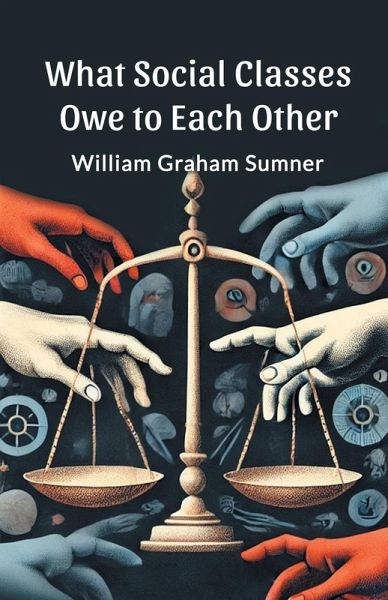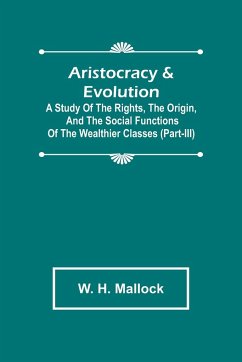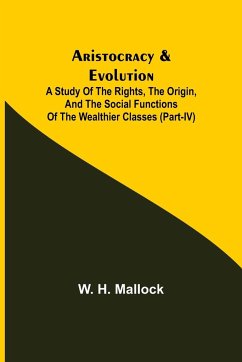
What Social Classes Owe to Each Other
Versandkostenfrei!
Versandfertig in 1-2 Wochen
12,99 €
inkl. MwSt.
Weitere Ausgaben:

PAYBACK Punkte
6 °P sammeln!
What Social Classes Owe to Each Other by William Graham Sumner is a seminal work in which the author challenges prevailing ideas about the responsibilities of different social classes in society. Written in 1883, Sumner argues that social classes are not obligated to help or support each other, and he critiques the idea that wealthier individuals have a duty to assist the poor. Instead, he promotes a vision of society where individuals are responsible for their own success, and wealth is the result of personal effort rather than social obligation. Sumner's ideas are grounded in the principles ...
What Social Classes Owe to Each Other by William Graham Sumner is a seminal work in which the author challenges prevailing ideas about the responsibilities of different social classes in society. Written in 1883, Sumner argues that social classes are not obligated to help or support each other, and he critiques the idea that wealthier individuals have a duty to assist the poor. Instead, he promotes a vision of society where individuals are responsible for their own success, and wealth is the result of personal effort rather than social obligation. Sumner's ideas are grounded in the principles of laissez-faire economics, advocating for minimal government intervention and a free-market economy. He also addresses the idea of "charity" from a critical perspective, suggesting that enforced charity, or wealth redistribution, harms both the wealthy and the poor by fostering dependency and inhibiting self-reliance. This work is considered a cornerstone of classical liberalism, influencing economic and social thought for generations. Sumner's views stirred considerable debate, especially among social reformers and advocates for the poor. His philosophy continues to be referenced in discussions about social justice, welfare policies, and the role of government in wealth distribution.












